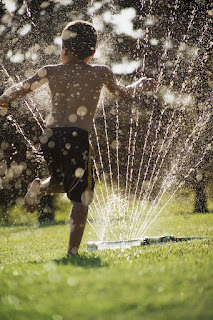August 10th, 2016 by IISG
Lauren Schnoebelen interned in Chicago with IISG Water Resource Economist Margaret Schneemann. Lauren is a recent graduate from Northern Michigan University with a major in environmental science, a concentration in natural resources, and a minor in sustainability.
This summer I spent my time working as the Water Policy and Pricing intern for IISG at the offices of the Chicago Metropolitan Agency for Planning. I didn’t really know what to expect. I was excited to work on policy issues and get familiar with township and village ordinances for water pricing, but I had never worked with large data sets before.
At first I was a little overwhelmed, but once I started getting the hang of it, I really enjoyed it because I got the opportunity to see what so many communities around me were doing to manage their water systems. After working for a month and a half on collecting as much data as I could get on water, sewer, and possible storm water rates, I needed to call village halls and water facilities to get any missing information.
The hope was to have all the rates available for the 2017 fiscal year. This gave me the opportunity to improve my communication skills by talking to dozens of people about what they charge their residents for water and sewer services. With this project done, I’m really excited to see how the final presentation of it will be in the Northeast Illinois Water and Wastewater Rates Dashboard.
Another opportunity that I was given was becoming a co-author of a published literature review. I helped to write about the economic value of ecosystem services in the Great Lakes region. This project allowed me to create and organize multiple tables displaying all the studies that were used in the paper and write summaries based on their subcategories of threatened ecosystem services. I also helped in editing and arranging the final layout of the literature review.
Throughout my summer, I was going to monthly meetings for the Northwest Water Planning Alliance and was involved in creating a community outreach brochure on establishing new lawns through seed or sod and their water requirements. This helped me see what communities are currently doing to work on water conservation and also how community outreach can lead to suggestions for policy change.
This internship gave me an opportunity that I haven’t had before. I worked on so many different aspects of water conservation which gave me great experience in creating a database, academic research and writing, and community involvement and outreach. With these skills, I know I will be extremely competitive in finding a full-time position in my field.
Illinois-Indiana Sea Grant is a part of University of Illinois Extension and Purdue University Extension.
June 6th, 2016 by IISG
IISG is excited to welcome four student interns this summer to help our specialists with everything from needs assessments, to outreach, to strategy facilitating, to economic valuations—and more. These four will spend 12 weeks working closely with a Sea Grant specialist on the issues affecting the Great Lakes.
 Jordan Lillybridge
Jordan Lillybridge
Green Infrastructure Workforce Intern
Margaret Schneemann
Located at Chicago Metropolitan Agency for Planning
Jordan is a senior at Carthage College in Kenosha, Wisconsin majoring in geospacial science with a minor in geographic information systems.
He will be conducting a needs assessment and market analysis to ensure that training and workforce development efforts are in line with the Calumet region’s occupational and employment needs, leveraging the relationship gap between stakeholders and the community, and making sure all aspects (skill gaps, design standards, municipal regulations and the regional environment policies) are being looked at when achieving a Green Infrastructure program

Abigail Petersen
Community Sustainability Intern
Kara Salazar
Located at Purdue University
Abigail graduated in May from the University of Illinois in natural resources and environmental sciences. She will be pursuing a Master’s degree in August 2016 in agriculture education at the University of Illinois.
During her summer internship, Abigail will collaboratively develop new extension education and training materials (case studies, fact sheets, excerpts of guide books) related to public spaces, rain gardens, and watershed management topics. She will also be help campus specialists deliver extension and training programs to communities across Indiana.
Abigail has hit the ground running in the two weeks since her internship began. She has attended the inaugural train the trainer program for the Enhancing the Value of Public Spaces program, supported the first meeting and launch of the advisory board and program development effort for the new Natural Resources Leadership Program, attended strategic planning meetings for IISG in Chicago, and helped to host a community meeting to start the Enhancing the Value of Public Spaces program in Columbus, Indiana.

Ashley Rice
Science Writer and Nutrient Strategy Facilitator Intern
Anjanette Riley, Eliana Brown, and Lisa Merrifield
Located at University of Illinois
Ashley comes to us from the agricultural communications program at Illinois State University, where she is about to start her senior year.
This summer, Ashley will wear two hats: a science writer and nutrient strategy facilitator. For her part in the communications team, Ashley oversees the Illinois Water blog, writing news and feature articles on IWRC research projects and important water issues facing the state.
She will also work closely with IWRC and IISG’s Eliana Brown to help facilitate Illinois Nutrient Loss Reduction Strategy implementation and support Eliana’s other stormwater and water quality outreach efforts.
 Lauren Schnoebelen
Lauren Schnoebelen
Water Pricing Intern
Margaret Schneemann
Located at Chicago Metropolitan Agency for Planning
Lauren is a recent graduate from Northern Michigan University with a major in environmental science, a concentration in natural resources and a minor in sustainability.
She will be working on the Ecosystem Services Project helping with organizing tables of articles and writing the literature reviews on their economic valuations.
Lauren will also be on the water rates database where she will be working with water rates and pricing ordinances.
Illinois-Indiana Sea Grant is a part of University of Illinois Extension.
May 27th, 2015 by iisg_superadmin
When municipalities consider how to set water rates, they often look to neighboring communities as reference points. This can involve a lot of digging for data, which takes lots of time, and in the end, may be comparing apples with oranges.
In the Chicago area, communities can now benchmark their water rates much more easily and can set comparisons to other communities that make sense. Northeast Illinois is now one of eleven locations that has a free water rates dashboard providing utilities with the ability to compare their residential water and wastewater rates against multiple characteristics, including utility finances, system size, customer demographics, and geography.
The Northeast Illinois Water and Wastewater Rates Dashboard was created by the University of North Carolina Environmental Science Center with support from the EPA Smart Management for Small Water Systems—a nationwide project of the Environmental Finance Center Network (EFCN).
The water rates data that brings this tool to life was compiled by Margaret Schneemann, IISG water resource economist and Jennifer Egert, IISG summer intern, in a survey of 224 municipalities in the greater Chicago region’s seven counties—Cook, DuPage, Kane, Kendall, Lake, McHenry, and Will.
Managing water supplies sustainably starts with getting the price right.
One of the larger goals of the water rate dashboard is for municipal utilities to make informed choices when setting water rates so that critical rate-setting factors get their proper due. “Rate comparisons taken out of context can lead to peer pressure to keep rates low while neglecting other objectives such as cost recovery and conservation,” explained Schneemann.
Complementing the dashboard is the
Full-Cost Water Pricing Guidebook,
which offers local decision makers basic “how tos” on implementing rates that encourage efficient water use and support investment in aging infrastructure.
The water rate dashboards include dials showing comparative measures of average monthly bills, affordability, how well rates cover operation and maintenance costs, and the level of conservation that is encouraged.
“The dashboard promotes resource sustainability while also supporting financial security for the utility and economic development for the community,” added David Tucker, EFCN project director.
For utilities that make the decision to raise water rates to more sustainable levels, the dashboard provides data to back up these proposals. In designing this resource, it was made user-friendly for a variety of possible audiences, including city officials, reporters, and customers.

 Jordan Lillybridge
Jordan Lillybridge

 Lauren Schnoebelen
Lauren Schnoebelen

